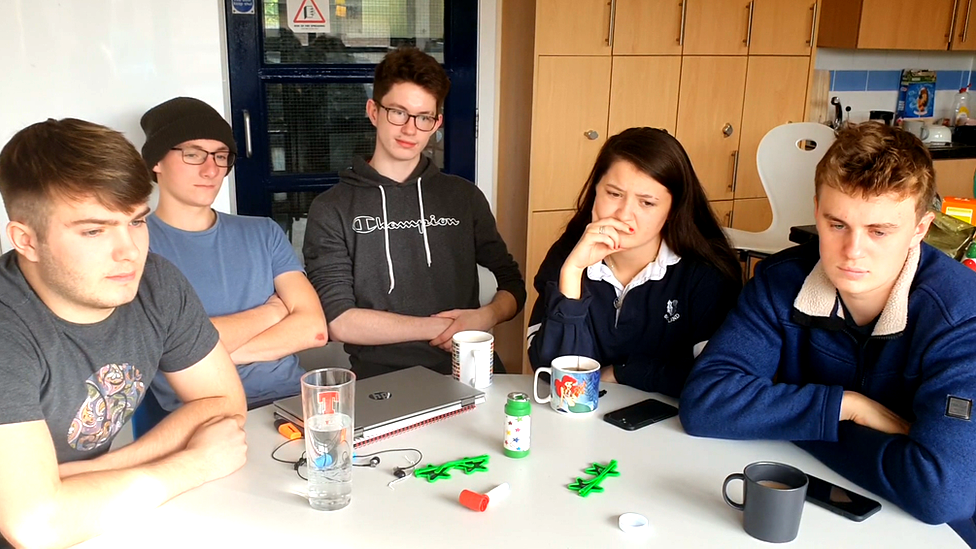Covid in Scotland: Students return with cautious hope for normality
- Published
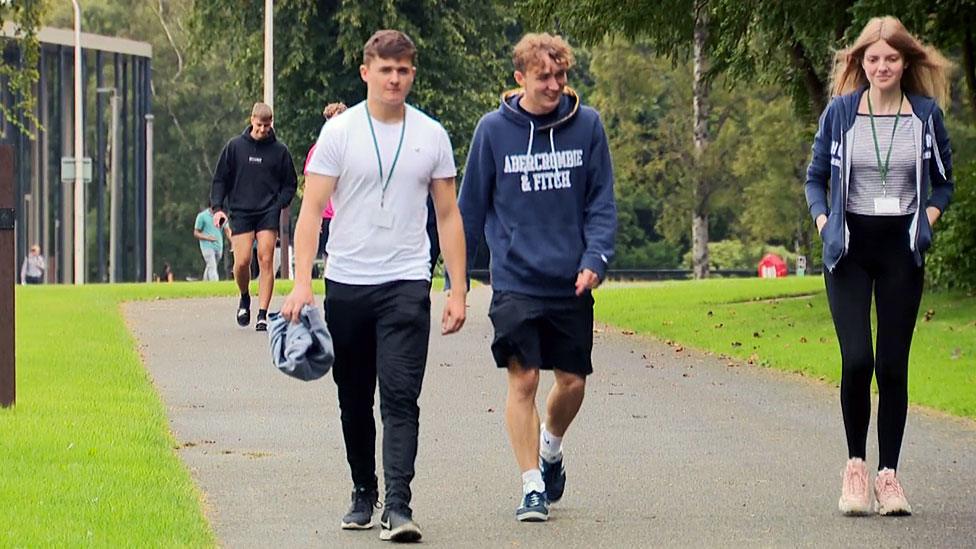
Campuses will have a busier feel this term as more students have in-person tutorials
Students have begun returning to universities across Scotland for a start of a "more normal" academic year.
Several campuses are holding freshers week events for new students and planning for more in-person learning.
Last year some subjects were taught entirely online because of the coronavirus pandemic.
However, concerns remain about Covid-19 outbreaks with high infection rates in Scotland and rates of full vaccination in young people running at about 50%.
Universities were previously advised to postpone freshers' week to allow more students time to be fully vaccinated.
There were several significant outbreaks in student accommodation last year when universities accounted for 3% of all Scotland's cases between September and November.
The return to campus this term comes as community transmission in Scotland continues to grow, with 7,065 people testing positive in the past 24 hours, up from 6,368 on the day before.
Hospital admissions have also increased with 771 patients, up 52 on the day before, and 71 in intensive care, up 10.
Figures released by the Office for National Statistics (ONS) on Friday estimated that one in 75 people had the Covid-19 virus in the previous week.
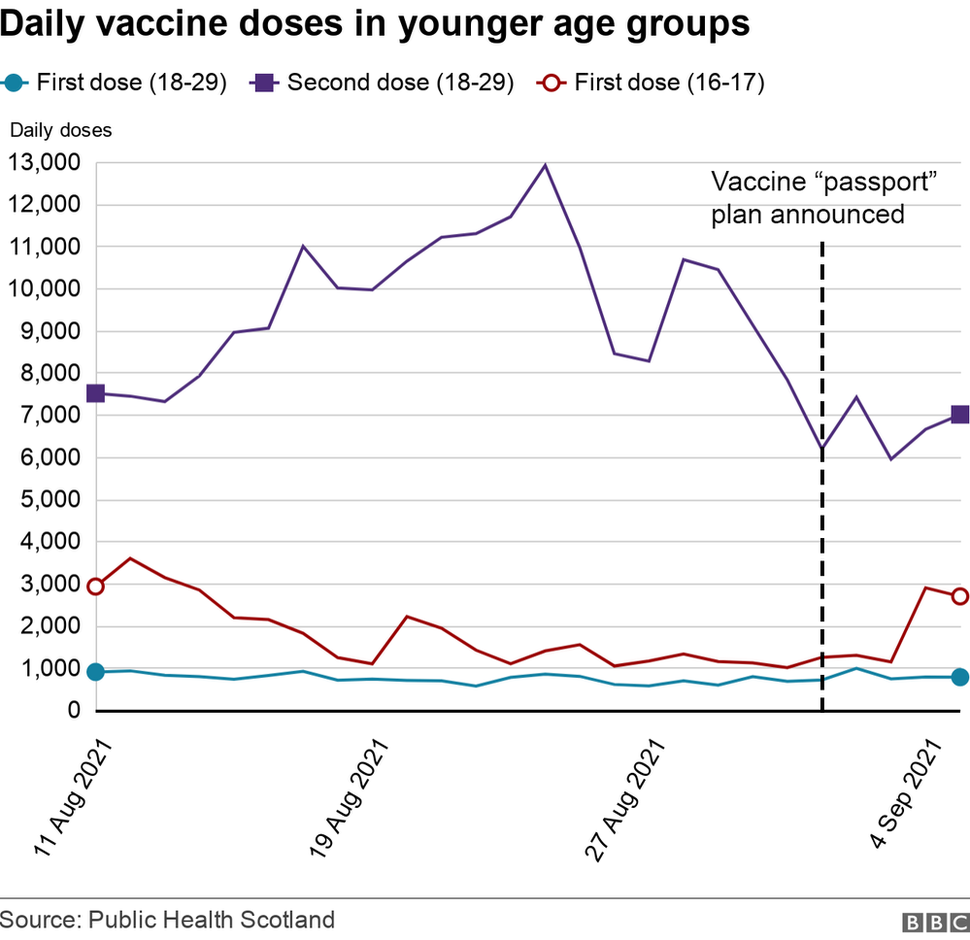
Vaccination numbers for young adults, who make up the majority of the student populations, are growing steadily with 74.8% of 18 to 29-year-olds now having had at least one.
At the weekend first doses were given to 1,880 18 to 29-year-olds, and 13,657 in that age group had their second dose.
Since last month when 16 and 17-year-olds were first entitled to get vaccinated, 58.1% have been given a first dose, with a large increase in this age group coming forward over the past weekend.
Alastair Sim, the director of Universities Scotland, told BBC Scotland's The Sunday Show that safety measures would be in place, pop-up vaccine clinics and testing would be available on campus, but lectures would be limited to 100 students.
"It is really important that we are able to bring back students and get on with the in-person learning that is so important, not just for learning reasons, but also for wellbeing reason and for inclusion reasons," Mr Sim said.
"We have been working very closely with the Sottish government and also with partners in the students movement and the staff side to make sure we are planning for a safe resumption of in-person learning."
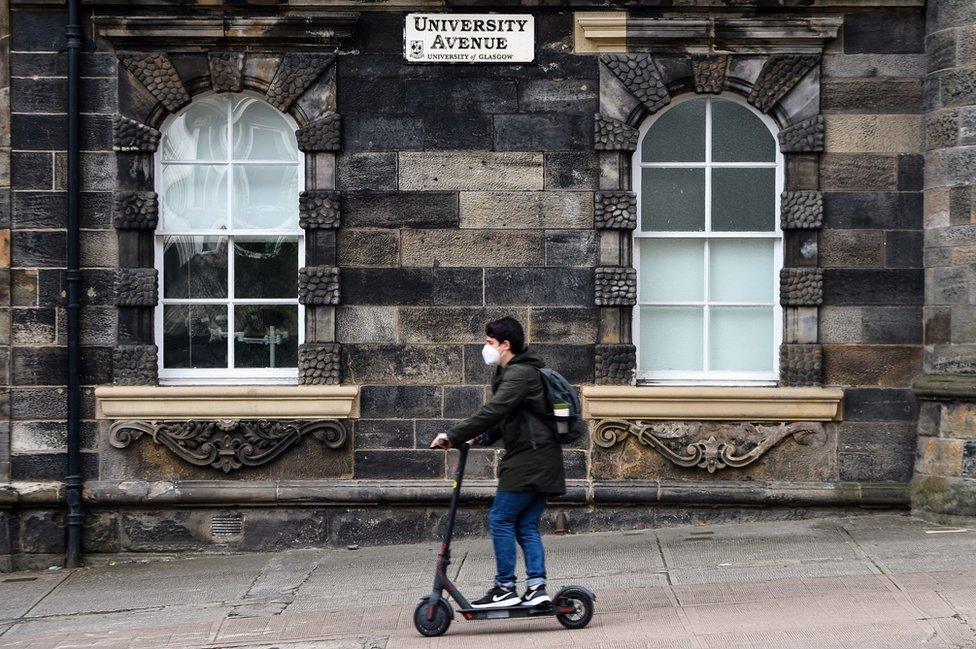
Freshers week at Glasgow University starts next week
Several universities start back this week, including Heriot-Watt, Napier, St Andrews, West of Scotland and Highlands and Islands.
Matt Crilly, president of the National Union of Students in Scotland, told Good Morning Scotland he was both worried and hopeful.
"I am pretty worried actually. The numbers are a lot higher this year and student accommodation is dense, packed housing.
"But I'm hopeful as well and I think students are hopeful that they might see some form of normality this year."
He said he understood that lectures for 400 students could not go ahead, but he added: "It is difficult when you look across the rest of society and you see cinemas packed and nightclubs and bars and everything is open."
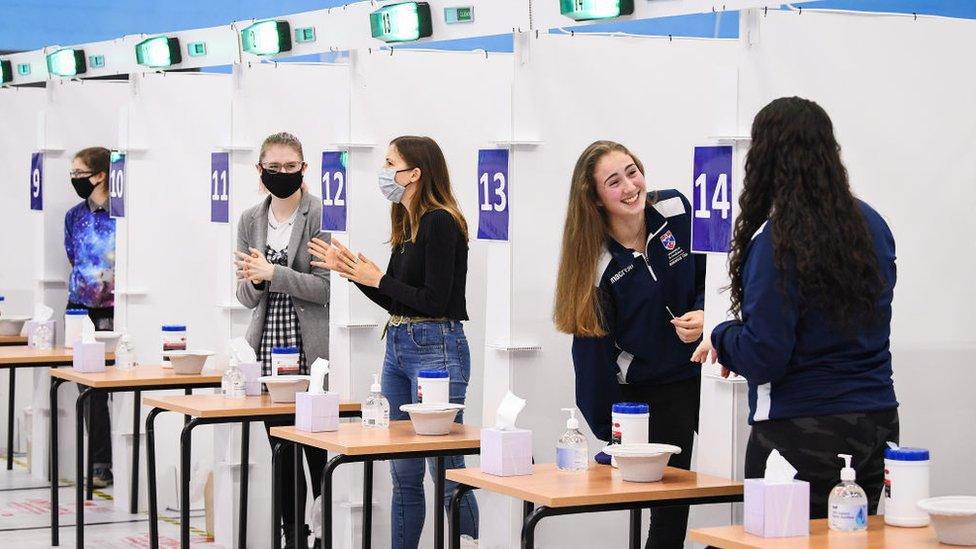
Mass Covid testing for students was introduced last year, but is now more widely available in Scotland
Mary Senior, the University and College Union's Scotland official, said a cautious approach was needed because community rates this year were far higher than they were in September 2020 and younger adults were the least likely to be fully vaccinated by the beginning of term.
"Given how exponentially higher the cases are at the moment, I really don't think we can be surprised if we are going to see outbreaks in student accommodation," she said. "We do need real caution in terms of returning to campus."
She said students shouldn't be blamed for outbreaks when the virus is out of control in society but social distancing on campus, face coverings, ventilation and good hygiene had to be prioritised.
It was "incredibly important" that the vast majority of large lectures would be delivered remotely, Ms Senior added.
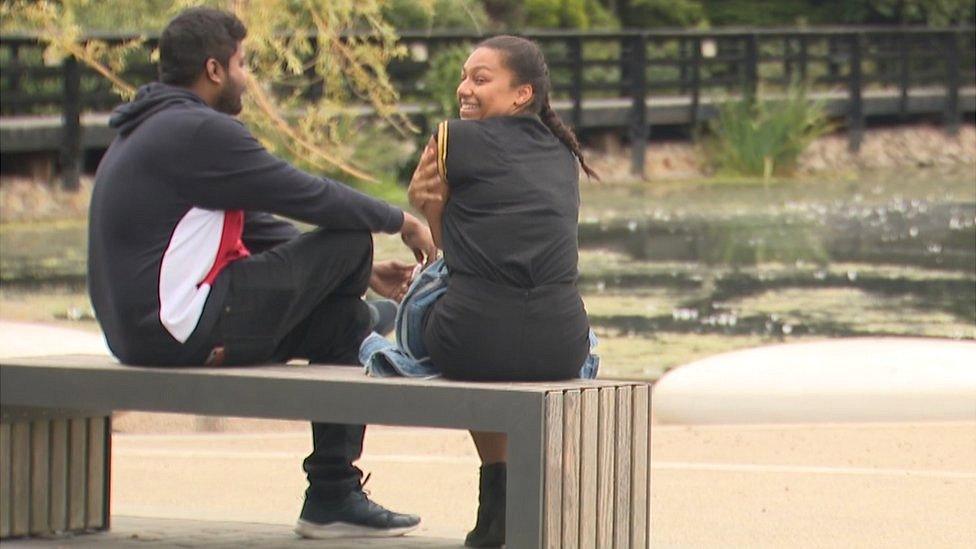
Students have been arriving at universities including Heriot-Watt
Jamie Hepburn, minister for higher education and further education, said the Scottish government had worked with universities to make a "more normal" experience for students with "greater levels of blended learning".
"There is going to be some on-campus activity but much is still going to be online."
He said numbers on campus would be limited as well as the cap to lecture sizes, but they had to take a "balanced approach to harms" for students.
Mr Hepburn said there would be on-campus vaccination drives and with more than half of young people already fully vaccinated it was judged that "this is a juncture where we can see a return of students to campus".
"The context is different this year from that last year," he said. "Testing is much more widely available than at the same point last year and we have the vaccination programme which has seen significant numbers of the cohort that largely students fall into in terms of age being vaccinated."
- Published2 September 2021
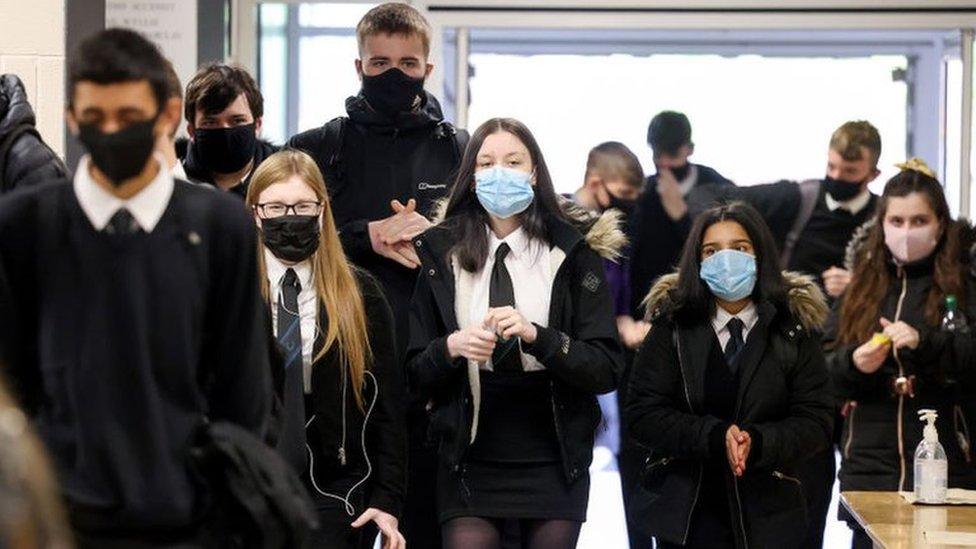
- Published27 August 2021
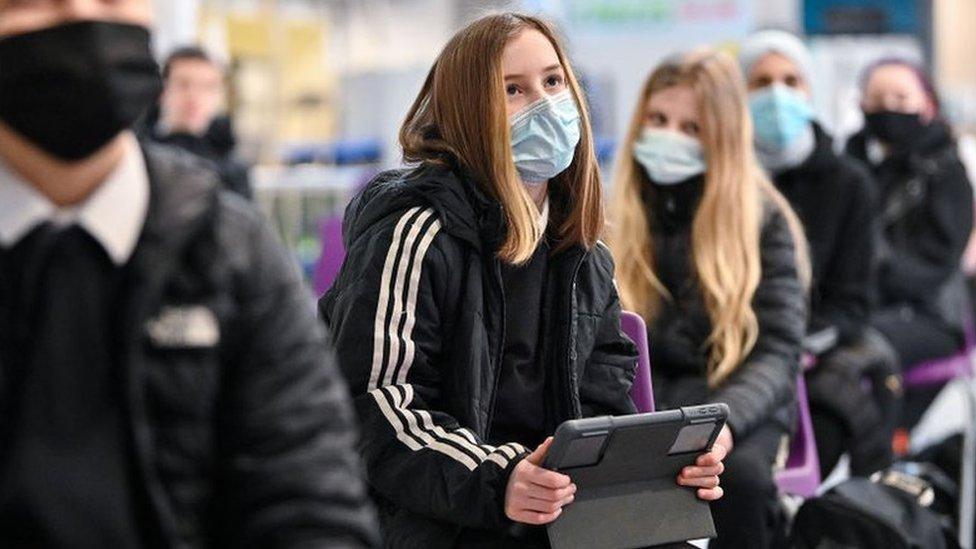
- Published24 August 2021
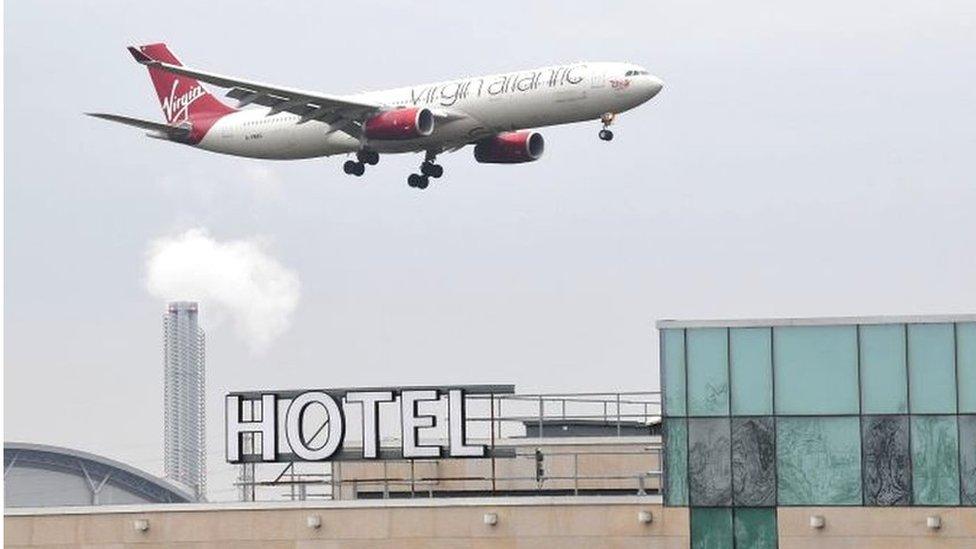
- Published30 June 2021

- Published19 October 2020
